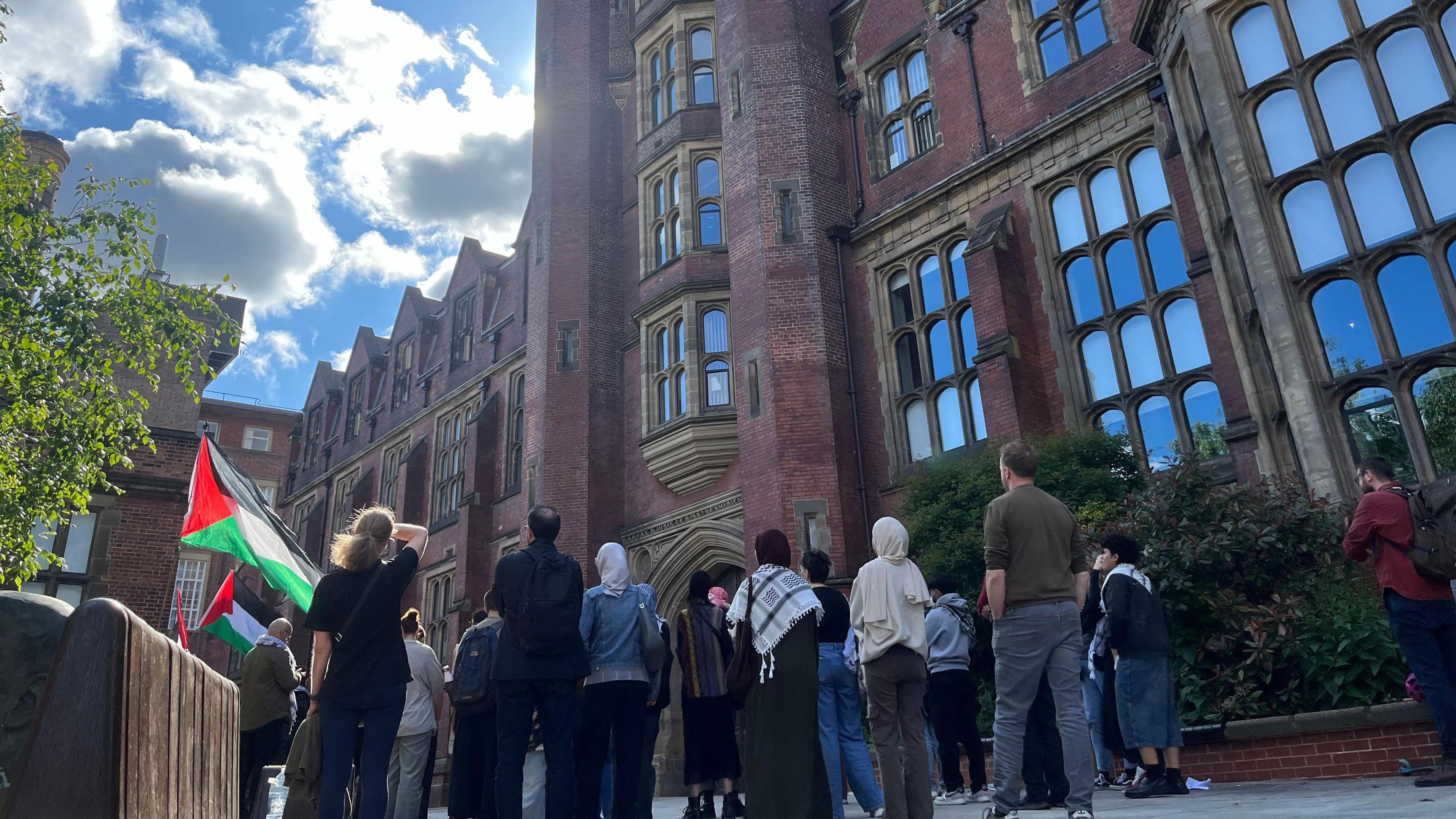Jewish students 'terrified' of Gaza war protests
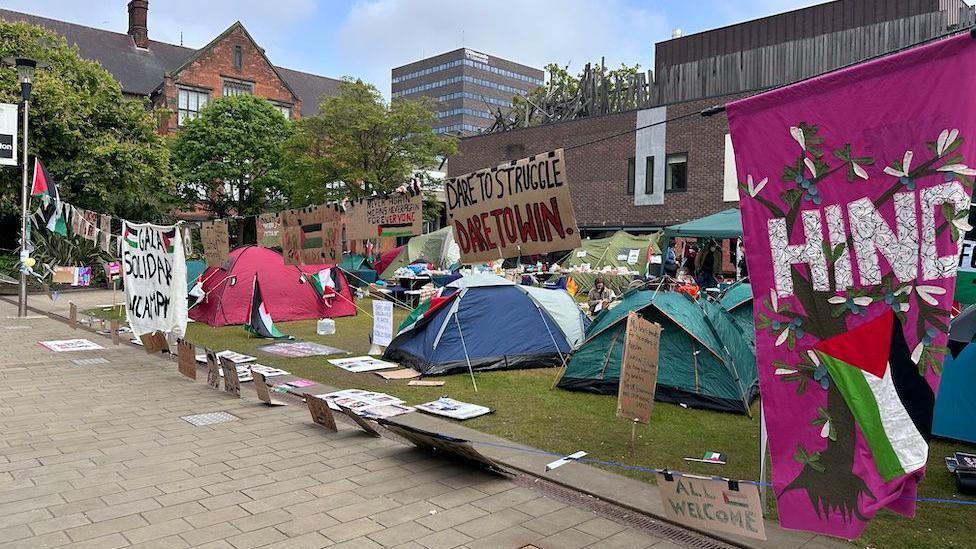
The protesters have been camped outside of Newcastle University
- Published
Jewish students say they are "terrified" by Gaza war protests taking place on campus.
Demonstrators, some masked, have been camped outside Newcastle University since 4 May and occupied one of its buildings at the end of May.
Members of the university's Jewish Society say they no longer feel safe on the site and some have resorted to hiding their traditional dress.
A spokesman for the demonstrators said they did not intend people to feel "intimidated".
The protest reached a climax on 29 May when a group of about 50 protestors occupied Newcastle University's Armstrong Building.
Northumbria Police said a number of them caused "considerable disruption" in the city centre later that evening and three people were arrested.
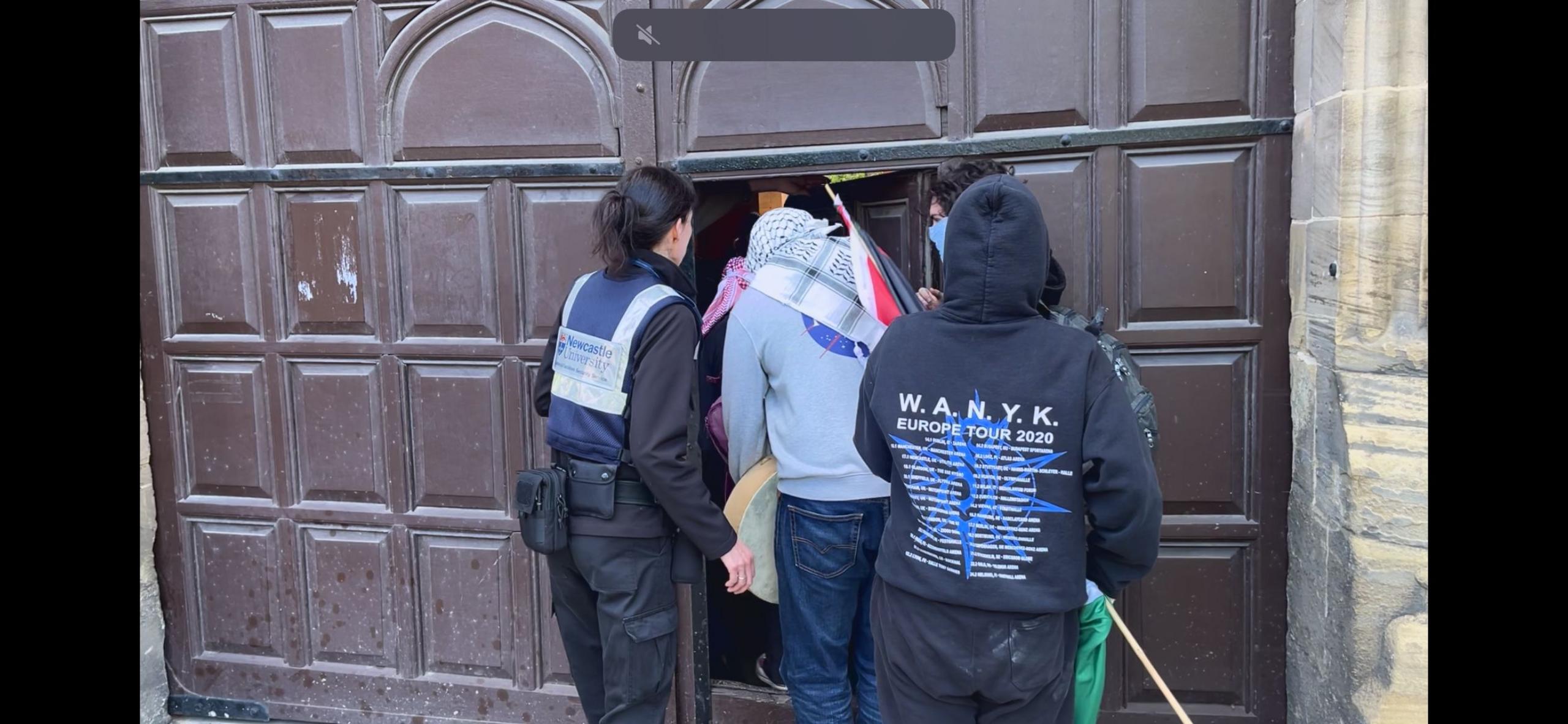
Security guards attempted to stop the protesters barricading themselves inside
A representative of the university's Jewish Society, who wished to remain anonymous because of concerns for their safety, said: "We are appalled at the recent escalations taken by the encampment, which has made it a terrifying time to be Jewish at Newcastle University.
"We avoid the camp where possible, but we refuse to be pushed out of our campus.
"We are here to study and that is what we would like to be able to do without hearing hate speech against us daily."
They added that "those of us that are visibly Jewish are especially fearful" and have taken to tucking their Star of David necklaces and traditional tassels into their clothes and wearing hats to hide their brimless kippah caps.
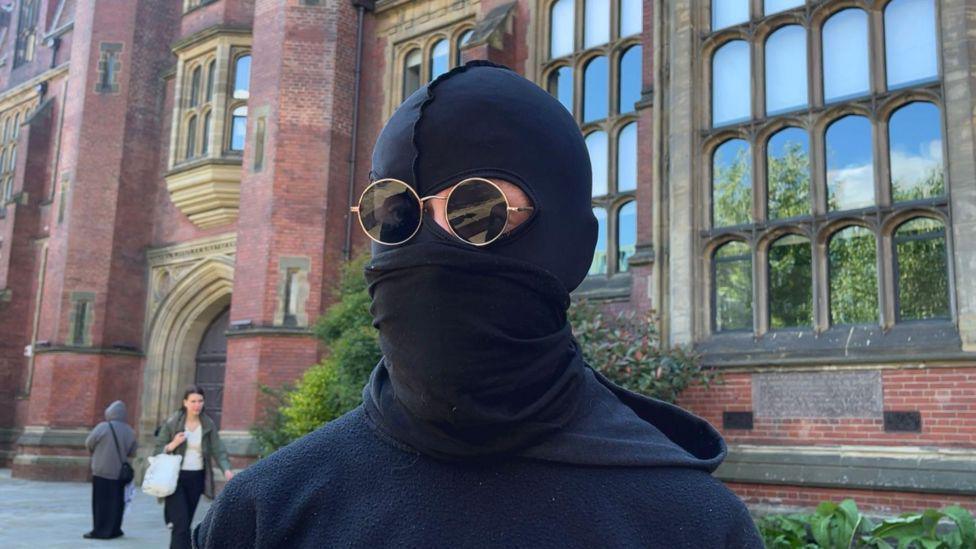
The spokesperson for the protesters said masks were only worn on the encampment and during actions
A spokesman for the demonstrators, who was hiding his identify during the protest, said they only wore masks while on the encampment or while carrying out an action such as occupying a building.
"In day-to-day life and the running of the camp people are generally not wearing masks and, in the sense, we as a camp have very strict procedures and protocols on discrimination," he said.
"That's all discrimination - antisemitism, Islamophobia, anti-Palestinian discrimination.
"If any student is feeling intimidated we want to adjust that and we want to do some outreach for them."
Follow BBC Newcastle on X (formerly Twitter), external, Facebook, external and Instagram, external. Send your story ideas to northeastandcumbria@bbc.co.uk.
Related topics
More stories from BBC North East and Cumbria
- Published5 May 2024
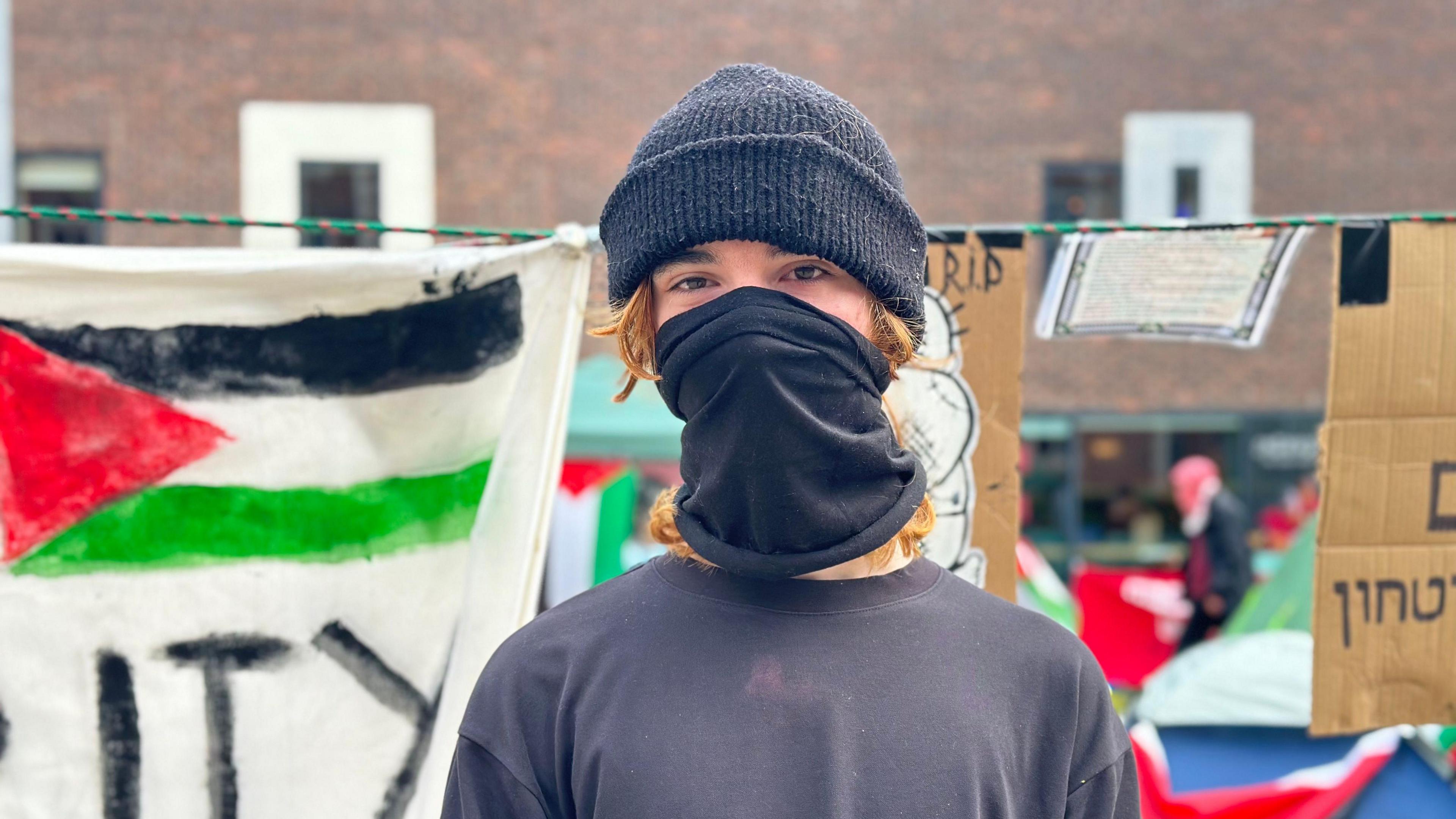
- Published30 May 2024
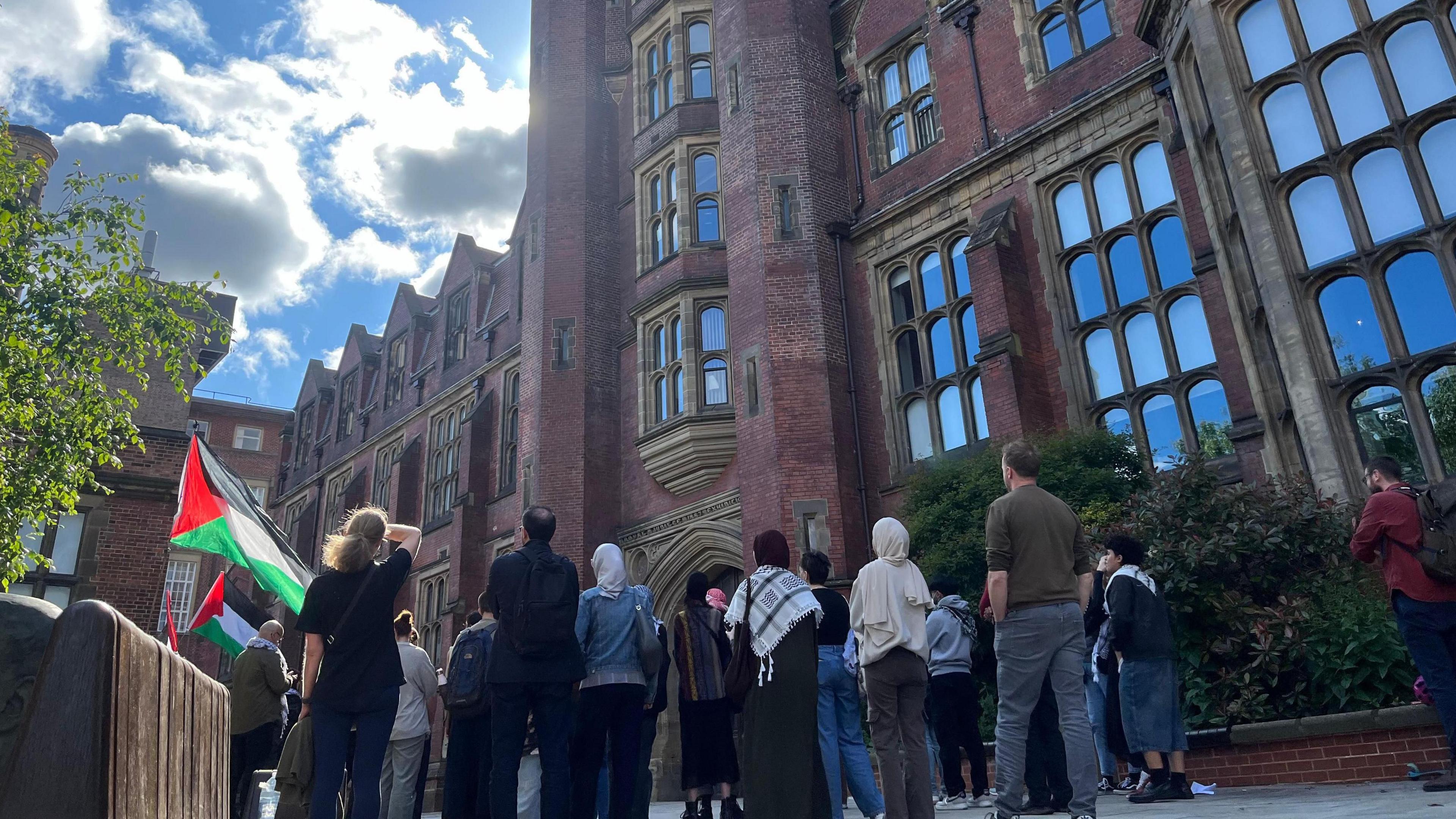
- Published29 May 2024
